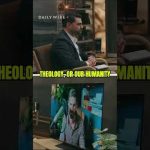Recently, a notable event unfolded in Montana where a significant political rally took place, bringing together over 1,500 people to hear from Senate candidate Tim Sheehy, an influential voice within the conservative space. The occasion was charged with optimism about the potential resurgence of conservative values and the belief that these values are central to overcoming the challenges faced by the nation. As they gathered, attendees were treated to political rhetoric and a philosophical framework for interpreting the current cultural and political landscape.
At the heart of the speeches was a clear delineation between two sets of values: those historically defined America and those gaining traction in current discourse. The former, described vividly using the acronym L.I.O.N. (for Lion), encapsulates values such as community responsibility, familial duty, hard work, and the timeless commitment to building a better future. The idea is that Americans, through these shared values, have faced and overcome adversity—much like the pioneers who braved rough terrains to carve out a better life in places like Montana. This legacy of innovation and entrepreneurship is grounded in a spirit that drives individuals to create rather than consume, to contribute rather than merely exist.
In contrast, the opposite viewpoint—the philosophy of the Scavenger—presents a mindset characterized by entitlement, a belief that society owes individuals something without requiring anything in return. This faction often seeks to dismantle established structures such as the family and religious institutions, viewing them as shackles to personal freedom rather than as necessary frameworks for a stable society. To assert that merely being “nice” to everyone is sufficient to achieve harmony dismisses the harsh realities of global interactions and the threats faced by adversarial ideologies. It is a dangerous naivety that risks undermining the fabric that has guided American values for centuries.
Further, the speech resonated with a reminder of the stakes involved in the upcoming elections. The call to action was clear: Americans must choose whether to align with a vision promoting stagnation and decay or seeking revitalization and growth. The implication is that each election is not just a routine political operation but a critical inflection point that could significantly alter the nation’s trajectory. This election cycle, specifically, is portrayed as essential for restoring the American spirit and reaffirming a commitment to values that have historically fostered prosperity.
Political rallies like the one in Montana are important platforms for rallying support around these core beliefs. They help invigorate communities to reflect on their roles within the greater narrative of American history. The underlying argument is simple yet profound: to ensure a bright future, citizens must embrace the responsibilities they hold towards one another, their communities, and the values that define their nation.
In the end, the future is in the hands of the American people, who have the power to either perpetuate a cycle of dependency or resurrect a culture of innovation and strength. The invitation to join in this journey is not merely an appeal to politics but a call to take part in a grander story of civilization—a story that still has many chapters to be written. And while the debate over values may be tumultuous, one thing remains clear: America’s ultimate triumph depends on its people’s will to uphold and propagate a legacy of leadership and resilience. Whichever path they choose shapes not just their lives but the future’s destiny.




